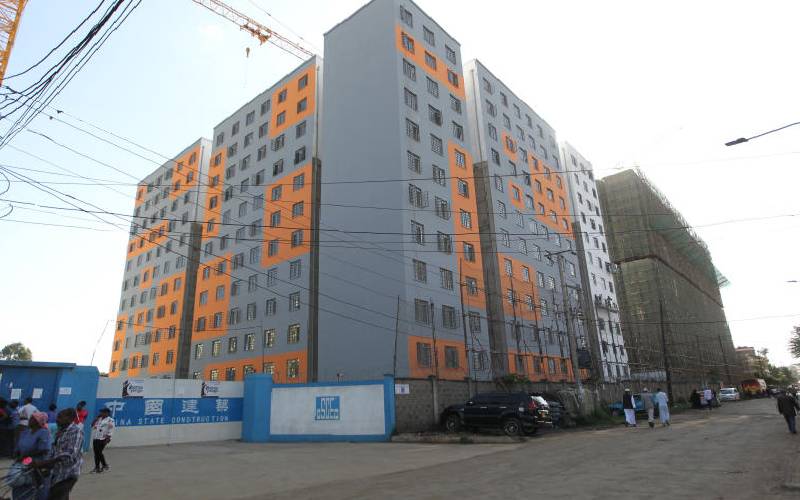×
The Standard e-Paper
Stay Informed, Even Offline

The 228 completed units out of 1370 being constructed by government at Park Road, Nairobi under the affordable housing programme. [File, Standard]
I grew up in Majengo Chura right opposite the Coast General Hospital in Mombasa. Home was a typical Swahili house with four rooms that opened up to a small open courtyard. There was a small pit latrine toilet in the corner. When it rained at night, it was a race to get to the toilet before you got too wet.